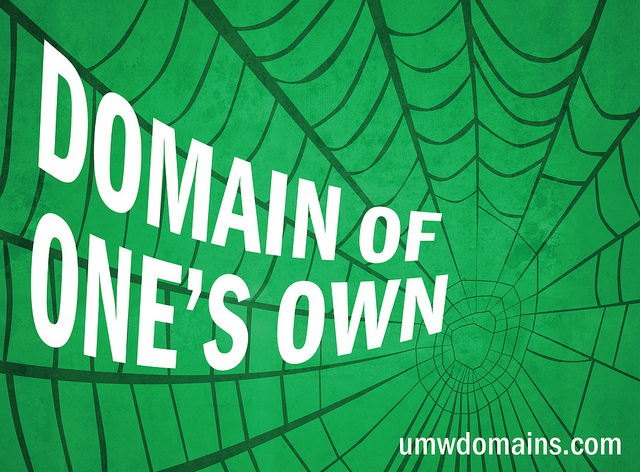nonprofit Sacramento Music Archive.
Also consider visiting https://calgarycassettes.org for indie music in Canada from the 80s/90s/2k eras.
nonprofit Sacramento Music Archive.
Also consider visiting https://calgarycassettes.org for indie music in Canada from the 80s/90s/2k eras.
sejarah seni rupa nusantara periode mooi indie
London Grammar - Nightcall (Live at Lowlands 2017) [YouTube]
site:: [[YouTube]] channel:: Magic Punk url:: https://www.youtube.com/watch?v=wkF9w86XXKU accessed:: 2023-12-09 17:20
London Grammar - Sights [Official Video] - YouTube
site:: [[YouTube]] channel:: London Grammar url:: https://www.youtube.com/watch?v=UBxxEyVIdO4 accessed:: 2023-12-09 12:10
London Grammar (2009-) - Wikipedia, English
site:: [[Wikipedia]] url:: https://en.wikipedia.org/wiki/London_Grammar accessed:: 2023-12-09 12:05
I knew if I wanted this website – which is an extension of my consciousness – to truly thrive, I needed to work on it in a sustainable manner. Bit by bit I slowly transformed the way I thought about it. Previously I would only work on it if I had the energy to make wholesale, dramatic changes. These days I am glad if I made one small change.
Winnie later goes on to point out that this is much like gardening: it is a slow process, and the process has its seasons which wax and wane, expanding and contracting. You sow. You seed. You water. You fertilize. You wait. You pick weeds. You water. Pick some more weeds. You might prune. You flick off the japanese beetles. And because of the cyclical nature of the planet we inhabit, we also have periods where nothing grows, and the soil lies dormant. Waiting. Resting. This, too, can be embraced as we carve out our little corners of the web, and really all aspects of our lives. I know I'm nearly as tender to myself as I should be.
With Stadia's consumer model going down the drain, Google announced it would pivot Stadia to become a behind-the-scenes, white-label data center service that the company will reportedly re-brand as "Google Stream."
I think that makes a lot of sense. Google doesn't want to do the "platform building" Microsoft and Sony excel at, and it doesn't have to.
Imagine playing or trying out video games simply on the developers website.
¿Por qué crear un sitio web?
"Un dominio propio": https://indieweb.org/A_Domain_of_One%27s_Own

A la Virginia Wolf, en "Una habitación propia": "«Una mujer tiene que tener dinero y una habitación propia para poder escribir novela»
If Medium is elevator music, indie blogging is punk.
Alles aan deze vergelijking klopt.
Sitio sobre Indie Web en Brea
Esto me interesa ¿hay algo en lo que pueda apoyar con lo que hemos avanzado en ese tema?
The future we're fighting for has no analog in mainstream tech, and so it's hard to articulate our strategy using their words. I know that we can feel it, though-- when a new person suddenly gets what we are attempting to do, it is like two instruments slowly coming into tune.
The philosophy of the modern web has saturated our world so thoroughly that corporate goals have the appearance of common sense
The hurdle we face today is not lack of skill, it's depression
stop waiting for these companies to get better
The emerging wave of Avant-Pop artists now arriving on the scene find themselves caught in this struggle to rapidly transform our sick, commodity-infested workaday culture into a more sensual, trippy, exotic and networked Avant-Pop experience. One way to achieve this would be by creating and expanding niche communities. Niche communities, many of which already exist through the zine scene, will become, by virtue of the convergent electronic environments, virtual communities. By actively engaging themselves in the continuous exchange and proliferation of collectively-generated electronic publications, individually- designed creative works, manifestos, live on-line readings, multi- media interactive hypertexts, conferences, etc., Avant-Pop artists and the alternative networks they are part of will eat away at the conventional relics of a bygone era where the individual artist- author creates their beautifully-crafted, original works of art to be consumed primarily by the elitist art-world and their business- cronies who pass judgement on what is appropriate and what is not.
something else is starting to take hold in the cultural imagination
My dream is to have people inspired to make webpages again about whatever they'd like, and share them in ways that don't promote competitive, addictive 'engagement stats'. And to have cyber-regional zine libraries that are collecting and supporting different scenes' work
YouTube
La diferencia es que Youtube es una empresa.
German credit agency to mine Facebook
Aquí resulta interesante la autonomía digital y la adopción de la web independiente: no es sólo por tener cierto control sobre los datos producidos, sino por los terceros que puedan sacar provecho de estas plataformas.
Similarly, the Club is not aiming for visibility at any price; which can be seen in the fact that it does not make use of Facebook or many other capital oriented and data hungry infrastructures.
En el caso de HackBo, tenemos presencia en Facebook y Twitter, pero no es muy activa y no ha sido estratégicamente usada para atraer a los visitantes a nuestras propias infraestructuras, que además no han madurado apropiadamente y difícilmente podrían facilitar la migración de otras personas a ellas o variantes alineadas con la Indie Web.
Similarly, the desire to communicate and collaborate and to coordinate activities within and beyond the Club’s boundaries through decentral-ized infrastructures was the driving force behind the hackers’ efforts to establish these networks
Kraftklub: Keine Nacht für Niemand [ooo]
VÖ: 2.6.2017
alt-J: Relaxer [oooo]
VÖ: 2.6.2017
Michael Nau: Some Twist [oo]
VÖ: 16.6.2017
Baio: Man Of The World [oo]
VÖ: 30.6.2017
LeVent: LeVent [oo]
VÖ: 30.6.2017
Kane Strang: Two Hearts And No Brain [oo]
VÖ: 30.6.2017
Andreas Ihlebæk: The Guest [oooo]
VÖ: 26.5.2017
Hajk: Hajk [ooo]
VÖ: 10.2.2017
Should faculty (and even students) have a greater say in which tools the university chooses instead of constantly finding themselves as consumers of those forced upon them by the institution?
The answer here is clearly yes. But what forums exist or might be imagined to enable this dialogue. I know at h we are lucky (if I might say so myself) to have an educator on staff and we work closely with faculty on our product. What more could we do though? And how could an indie ed tech community more broadly nurture these conversations?...
The Personal in Indie
if someone is willing to commit to talking through hip hop
I got this...
like the personal API
I need to learn more about this movement...
They are tools like SPLOT, Wikity, Reclaim Hosting, Known, Github, and Hypothes.is to name a few.
Word!
At least on dating apps everyone can agree that everyone on the app has the same desired goal: a relationship.
Interesting distinction. So we don't have the same goals in the algorithm of, say, an adaptive learning program?...
You can listen to the “I Love My Label” playlist on Spotify, but you should support artists by buying their music. Unless it's Metallica. Then share freely.
Badass.
counterintuitively perhaps less “personalized.”
But isn't the point that is is more (or more actually) "personalized"?
“Personalization” might sound like it’s designed especially for us; but “personalization” is an algorithm based on a profile, on a category, on a label.
This is a powerful argument. But could a proliferation of labels, enabled by computational power, better approach personalization?
I've been thinking about a similar idea in relation to the music industry/algorithm while reading the above: are Spotify/Netflix recommendations looking for the hit? Or are they looking for musical/filmic suggestions that will keep me individually as a customer? I'm much more compelled by that model than what's offered on top 40 radio or the megaplex.
Algorithms and analytics will “personalize” our world, we’re told. The problem, of course, is that the algorithms and the analytics also make everything sound the same.
I'd love to just accept this argument, but want there to be more evidence. No doubt there are more radical forms of self-education, but isn't it true to some degree that there is personalization in, say, adaptive learning programs?
What happens in the face of an algorithmic education to intellectual curiosity?
Fair enough, but is it either/or or both/and. I'm happy to be recommended a new band by Spotify, but ultimately will make the call if I like it or not, perhaps even clicking a reaction so that the algorithm gets better? Or is that a fantasy?...I'm also not going to be deaf to my friends recommendations, etc. that might also direct my musical curiosity.
I call myself a “serial dropout,”

Little by little the subversive features of the computer were eroded away: Instead of cutting across and so challenging the very idea of subject boundaries, the computer now defined a new subject; instead of changing the emphasis from impersonal curriculum to excited live exploration by students, the computer was now used to reinforce School’s ways. What had started as a subversive instrument of change was neutralized by the system and converted into an instrument of consolidation.
Wow, This is a great quote, and so apt in this new context of the rise of the LMS.
Once something sells, than we hear it and echoes of it again and again and again and again.
Love this sequence of slides:
No one – well, except my parents, I guess – knew how many times I played that 45 of Autograph’s “Turn Up the Radio,” how many times I rewound the cassette to replay Guns & Roses’ “Welcome to the Jungle.” But now the software knows
This seems empowering to me (or potentially so)...
predict hit songs
Different from predicting what songs I might like.
While there are some features shared between a university repository and us we are distinctly different for the following reasons: We offer DOIs to all content published on The Winnower All content is automatically typeset on The Winnower Content published on the winnower is not restricted to one university but is published amongst work from peers at different institutions around the world Work is published from around the world it is more discoverable We offer Altmetrics to content Our site is much more visually appealing than a typical repository Work can be openly reviewed on The Winnower but often times not even commented on in repositories. This is not to say that repositories have no place, but that we should focus on offering authors choices not restricting them to products developed in house.
Over this tension/complementary between in house and external publishing platforms I wonder where is the place for indie web self hosted publishing, like the one impulsed by grafoscopio.
A reproducible structured interactive grafoscopio notebook is self contained in software and data and holds all its history by design. Will in-house solutions and open journals like The Winnower, RIO Journal or the Self Journal of Science, support such kinds of publishing artifacts?
Technically there is not a big barrier (it's mostly about hosting fossil repositories, which is pretty easy, and adding a discoverability and author layer on top), but it seems that the only option now is going to big DVCS and data platforms now like GitHub or datahub alike for storing other research artifacts like software and data, so it is more about centralized-mostly instead of p2p-also. This other p2p alternatives seem outside the radar for most alternative Open Access and Open Science publishers now.
Kartik Prabhu on marginalia on the Web.
PlayStation C.A.M.P. — the same team behind last year's quirky Tokyo Jungle — examines another offbeat topic for its latest project: What if you were invisible and could only see yourself or be seen by others when standing in the rain?
Such a great idea. I was stoked to see this at E3!